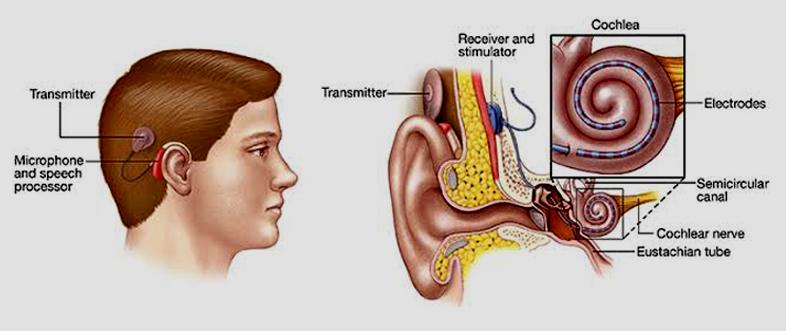
Maa Institute of Speech and Hearing (MISH)
H. No. 8-2-293/82/A/1266,Road No. 36, Jubilee Hills,
Hyderabad – 500033.
Phone: 040 – 2321 2166, 2321 2177

Cochlear implants are electronic medical devices that replace the function of the damaged inner ear. Unlike hearing aids, which make sounds louder, cochlear implants mimic the work of damaged parts of the inner ear (cochlea) to provide sound signals to the brain. Cochlear implants bypass damaged hair cells in the inner ear and directly stimulate auditory nerve endings with the electrical impulses using an array of implanted electrodes. It is designed for people whose hearing does not improve with surgical correction or with the use of a hearing aid.
The Cochlear Implant Unit focuses to improve the quality of life of children with bilateral profound sensor neural hearing loss by facilitating hearing and communication. We work with children who are considering cochlear implants (either under the Government funded scheme “ADIP” or self-assisted) and those who have undergone implantation. The unit functions as a team which includes audiologists, speech-language pathologists, psychologists, auditory-verbal therapists, and ENT surgeon. Patients who are considering cochlear implantation undergo pre-implant counselling and a complete evaluation of the child’s auditory, speech and language skills to ensure that they meet the candidacy criteria.

